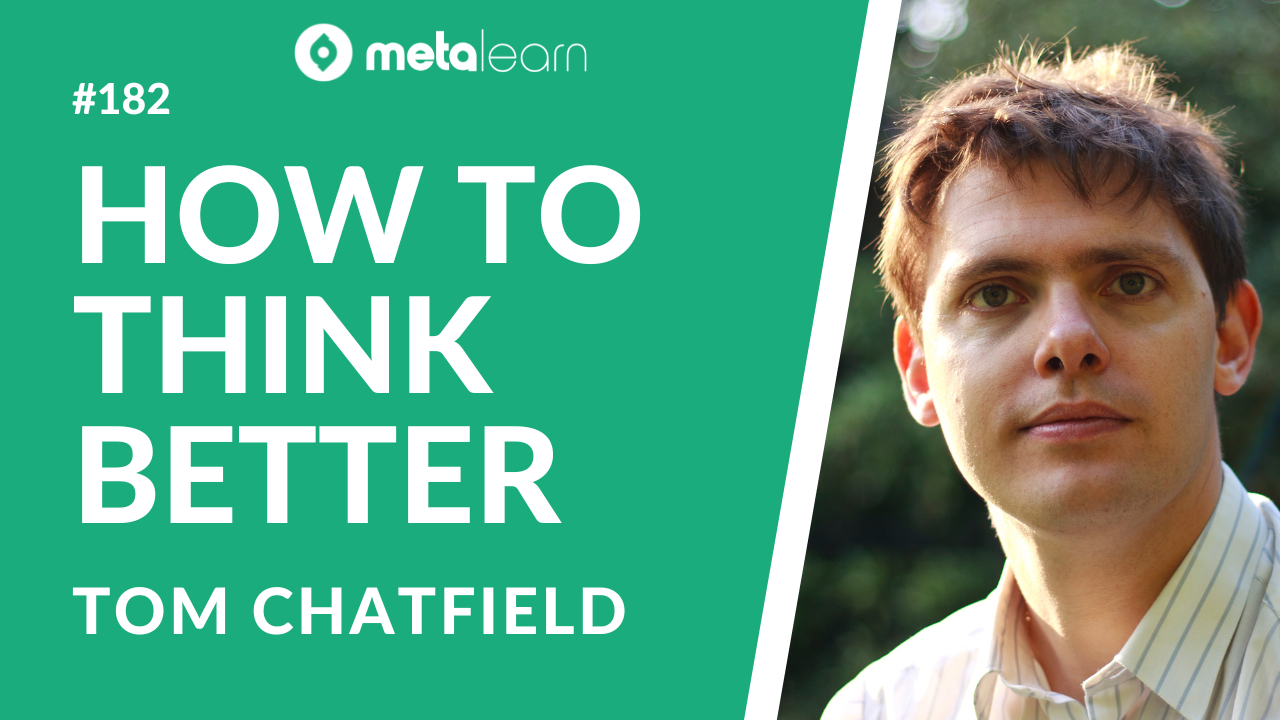ML182: Tom Chatfield on Overcoming Cognitive Biases, Finding Trustworthy Sources and How To Think Better
Discover how to overcome your biases so you can be less wrong, the three characteristics of valuable information sources and how to think more clearly in a world of information overload.

Tom Chatfield is an author and philosopher. He has written the textbook Critical Thinking, and more recently, the book How To Think, a short guide outlining 10 key concepts to help you identify and examine your biases and construct logical arguments.
Thinking is hard work but often we don’t see it that way.
That’s because having thoughts isn’t the same as thinking. Real thinking is active not passive. It involves continuous questioning and challenging your own perspective to get a more accurate view of reality – and that’s really difficult.
In a time where we’re exposed to more information than ever before, and things are getting more tribal and polarised, being able to think for yourself is more important than ever.
As the person who has literally written the textbook on the subject, Tom is the perfect person to help you think more critically. In this episode we discuss:
- How to avoid common thinking mistakes and deal with your biases so you can be less wrong
- The three characteristics of valuable information sources and how to identify charlatans
- How to understand statistics and form an accurate picture of reality in a data driven world
We also discuss Tom’s experience writing a book on critical thinking during the pandemic, explaining the situation to his children and the difficult task of teaching people to think. This was a great conversation that will help you overcome thinking mistakes and make sense of the world around you.
Show Notes
- Tom shares how he and his wife helped their kids understand last year’s COVID-19 outbreak [00:45]
- Why hasn’t the world come to a state of anarchy despite the challenges of the pandemic? [02:16]
- Why is explaining something to children a good reference point for clear thinking? [04:59]
- Does Tom believe his education has taught him to think well? Why is asking questions a valuable skill in education? [07:12]
- What can the philosophy of American pragmatism teach us about the way we think about the world and our place in it? [10:48]
- What are cognitive biases? How can our biases interfere with our decision-making? [15:38]
- What have conversations around the pandemic and its effects shown about how we think as a society? [22:04]
- How does the language of honest doubt help people navigate uncertainty? [22:43]
- Why is it important to consider the nature of the attention economy and people’s information ecosystems? [26:14]
- What are the characteristics of trustworthy information sources? [29:44]
- Who are the people that Tom believes satisfy the three characteristics of valuable sources? [33:07]
- Why is it important to have a clear reason for disagreeing with something? [34:51]
- To what extent can understanding the other side of the argument be fruitful? [37:56]
- Why does Tom believe that data is made and not found? Why is it necessary to be transparent over how data is processed? [42:56]
- What are the short and long term solutions for helping people to think better? [50:01]
- Closing remarks [55:40]
Resources
Follow Tom online
- How to Think: Your Essential Guide to Clear, Critical Thought by Tom Chatfield
- Think Critically by Tom Chatfield
- Thinking, Fast and Slow by Daniel Kahneman

